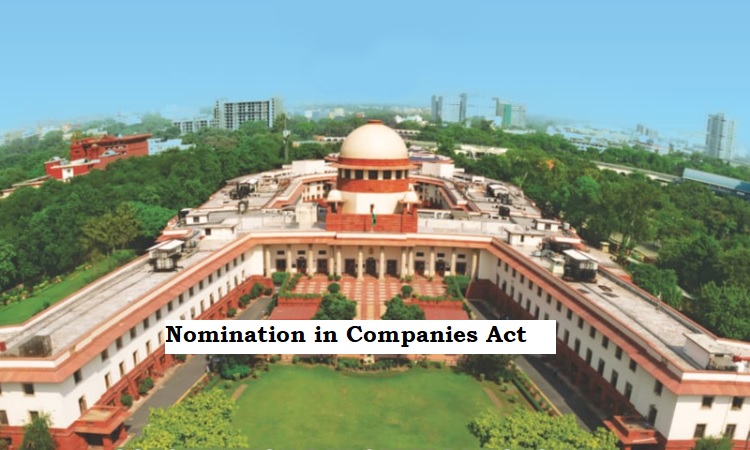


The recent decision by the Supreme Court has significant implications for the intersection of corporate law, succession planning, and nominee rights. The Court, in its ruling, clarified that the nomination process under the Companies Act, specifically the Companies Act of 1956 (applicable pari materia to the Companies Act of 2013), does not take precedence over succession laws. This legal pronouncement underscores the distinct domains of company affairs and succession planning for shareholders.
According to the Court's findings, the Companies Act is not designed to facilitate or dictate the succession planning of a shareholder. Instead, the responsibility for determining the line of succession lies with the administrator or executor, as per the Indian Succession Act of 1925, in cases where a will exists. In instances of intestate succession, the applicable laws of succession govern the distribution of the estate.
The Court upheld the decision of the High Court, which maintained that nominees of shares or securities are not automatically entitled to the beneficial ownership of the nominated assets to the exclusion of other individuals with legitimate claims under succession laws. This assertion reinforces the principle that nomination does not confer ownership rights in a manner that supersedes established succession laws.
Furthermore, the Court acknowledged the complexity introduced by commercial considerations in dealing with nomination issues pertaining to companies. The ruling recognizes that until legal heirs can sufficiently establish their right of succession, a discharge to the entity may be granted, but this should be distinguished from transferring ownership of securities to nominees instead of the legal heirs. The Court emphasized that the nomination process, as outlined in the Companies Act and Depositories Act, does not establish a third mode of succession.
The case that led to this ruling involved Mr. Jayant Shivram Salgaonkar, who had executed a will for the devolution of his estates. The testator had nominated individuals, including the Appellants and Respondent No. 9, in relation to certain mutual fund investments. Following the testator's demise in 2013, a legal dispute ensued when the Respondent No. 1 sought a declaration that the testator's properties should be administered under the court's supervision. The dispute included a request for absolute power to administer the properties and a permanent injunction against creating third-party rights on the assets.
The Appellants argued that they, as sole nominees, were vested with absolute rights to the securities after the testator's death. They contended that the nominations were made in compliance with specific sections of the Companies Act of 1956 and relevant provisions of the Depositories Act of 1996. The Appellants urged the court to interpret Section 109A and 109B of the Companies Act of 1956 as a comprehensive code, where the meanings of 'vest' and 'nominee' should be derived solely from the statute, considering the non-obstante clause contained therein.
The legal landscape surrounding nominations and succession was further elucidated by the Court's reference to the Bombay High Court's decision in Harsha Nitin Kokate v. The Saraswat Co-operative Bank Ltd and Ors. (2010). In this case, it was established that the legal heirs of a deceased individual would inherit ownership rights to share certificates, not the nominees.
In conclusion, the Supreme Court's ruling reinforces the importance of adhering to succession laws in matters of inheritance, even in the context of corporate nominations. The decision provides clarity on the limitations of the nomination process under the Companies Act, emphasizing that it does not create a parallel succession mechanism. Legal heirs retain their rightful claims under succession laws, and nominees do not automatically supersede these established principles. This judgment serves as a crucial precedent in navigating the nuanced intersection of corporate and succession laws in India.
TAGS: Supreme Court Companies Act Succession Laws Nomination Process Shareholder